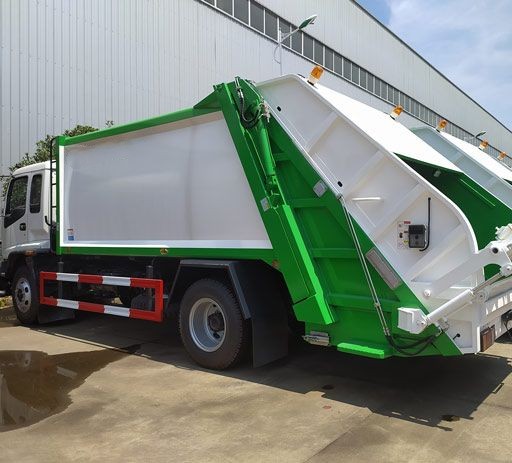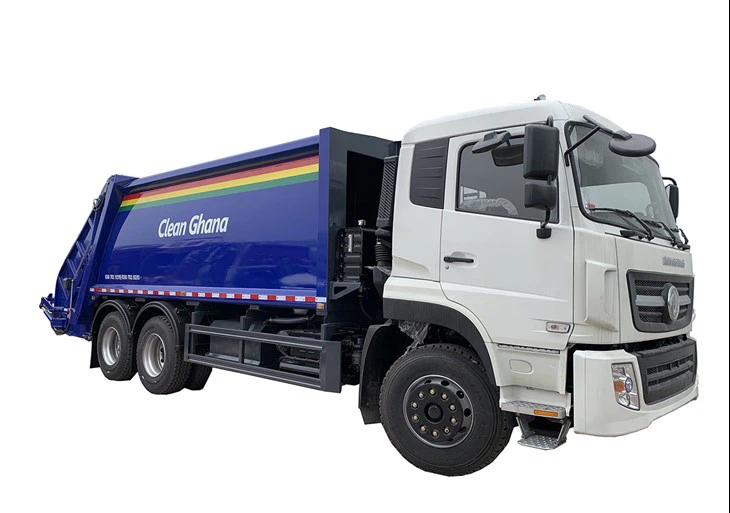Introduction
In today’s fast-paced world, trucks play an essential role in the transportation sector, yet they often contribute significantly to environmental waste. This article delves into the concept of “truck trash,” examining what it encompasses, its sources, and practical strategies for managing this waste. Whether you’re a truck owner, fleet manager, or environmentally conscious individual, understanding truck trash is crucial for promoting sustainability in the automotive industry.
What is Truck Trash?
Truck trash refers to the waste generated from trucks during their operation, maintenance, and disposal processes. This type of waste can include various materials, ranging from packaging and parts replacements to improper disposal of hazardous substances. Managing truck trash is vital for minimizing environmental impact and promoting public health.
Types of Truck Trash
Understanding the various types of truck trash is fundamental for effective management. The main categories include:
- Maintenance Waste: Oil filters, batteries, tires, and worn-out parts.
- Packaging Waste: Strapping materials, boxes, and wrapping from manufactured or delivered goods.
- Cleaning Waste: Cleaning agents, rags, and solvents used during truck maintenance.
- Fuel Waste: Spillage or leftover fuel during refueling or maintenance.
- Hazardous Waste: Fluids and materials that can pose threats to the environment and health, such as oil, coolant, or heavy metals.
Sources of Truck Trash
Operational Activities
Trucks generate considerable trash during their regular operation. Common sources include:
- Deliveries and pick-ups, leading to packaging and other disposable materials.
- Maintenance activities that produce used parts and cleaning materials.
- Improperly disposed fuel and oil during maintenance operations.
Environmental Regulations and Legislation
Truck operators must comply with various environmental laws that dictate proper waste disposal. Failure to adhere to these regulations can lead to increased truck trash through improper dumping and hazardous waste exposure.
Human Behavior
The behavior of drivers and operators significantly impacts the amount of truck trash generated. Inconsistent waste management practices, such as poor separation of recyclables and inadequate disposal of hazardous materials, contribute to the overall issue.
Impact of Truck Trash on the Environment

Pollution

Truck trash contributes to pollution when improperly disposed of, affecting soil, water, and air quality. Hazardous materials can seep into the environment, leading to long-term ecological damage.
Resource Depletion
The accumulation of waste contributes to resource depletion. Materials from truck maintenance, such as tires and batteries, require significant energy and raw materials to produce again when recycled improperly.
Strategies for Managing Truck Trash
1. Implementing a Waste Management Plan
A comprehensive waste management plan is essential for truck operators. This plan should include waste generation assessment, segregation, and disposal strategies tailored to the specific types of truck trash being generated.
2. Promote Recycling
Encouraging the recycling of materials such as metal, plastic, and paper can substantially reduce the volume of truck trash. Set up recycling stations at truck depots and educate drivers on proper recycling practices.
3. Proper Handling of Hazardous Materials
Trucks often deal with hazardous waste that requires special handling. Implement training programs for staff on recognizing, storing, and disposing of hazardous materials correctly to minimize environmental risks.
4. Regular Maintenance Checks
Conducting routine maintenance checks helps identify potential waste issues before they escalate. Regular engine checks can prevent leaks, while timely replacements can reduce the accumulation of maintenance waste.
5. Collaboration with Waste Management Companies
Partnering with waste management companies that specialize in automotive waste can provide expert solutions for disposing of and recycling truck trash efficiently.
6. Driver Education and Engagement
Educating drivers about the impact of truck trash and involving them in creating solutions can lead to behavioral changes that significantly reduce waste generation. Through workshops and incentives, promote sustainable trucking practices.
Examples of Successful Waste Management Programs
Case Study: Fleet Management Company
A fleet management company implemented a waste management initiative that led to a 50% reduction in truck trash over three years. Their strategy included driver training, waste audits, and the establishment of partnerships with recycling firms.
Case Study: Transportation Firm’s Green Initiative
A leading transportation firm adopted a green initiative that involved the installation of recycling bins in all their trucks. Additionally, they offered rewards for drivers who excelled in waste management, which led to a culture of sustainability within the company.
Modern Technologies in Waste Disposal
1. Waste Tracking Systems
Technology such as waste tracking systems helps companies monitor the types and amounts of waste they generate, providing insights for improvement and compliance with environmental regulations.
2. Smart Waste Containers
Smart waste containers equipped with sensors can alert management when full, ensuring timely disposal and reducing overflow and illegal dumping incidents.
Challenges in Managing Truck Trash
Regulatory Compliance
Meeting government regulations can be overwhelming for small truck operators. Understanding local laws regarding waste disposal and recycling can be a challenge.
Cost Implications
Implementing waste management systems often involves initial costs and ongoing training expenses, which can be a barrier for some truck operators.
Conclusion
To mitigate the impact of truck trash on the environment, it is crucial for those in the trucking industry to adopt effective waste management practices. By understanding the types, sources, and proper disposal methods for truck trash, operators can contribute to a more sustainable future.
FAQs
What is the most common type of truck trash?
The most common types of truck trash include maintenance waste such as old tires, oil filters, and batteries, as well as packaging materials from deliveries.
How can I reduce truck trash in my operation?
Implement a comprehensive waste management plan, promote recycling, conduct routine maintenance, and educate your drivers on responsible waste practices.

What should I do with hazardous waste generated by my truck?
Consult local regulations for hazardous waste disposal and partner with specialized waste management companies to ensure safe and compliant disposal.
Are there any financial incentives for reducing truck trash?
Many governments offer tax credits, grants, or funding opportunities for companies that implement sustainable practices and reduce waste, which can help offset the costs involved.
Can modern technology help in managing truck trash?
Yes, modern technologies such as waste tracking systems and smart containers can optimize waste management processes, ensuring efficiency and compliance with regulations.
What role do drivers play in managing truck trash?
Drivers play a critical role in managing truck trash through their habits in waste disposal and recycling practices. Educating and involving them can lead to better waste management outcomes.